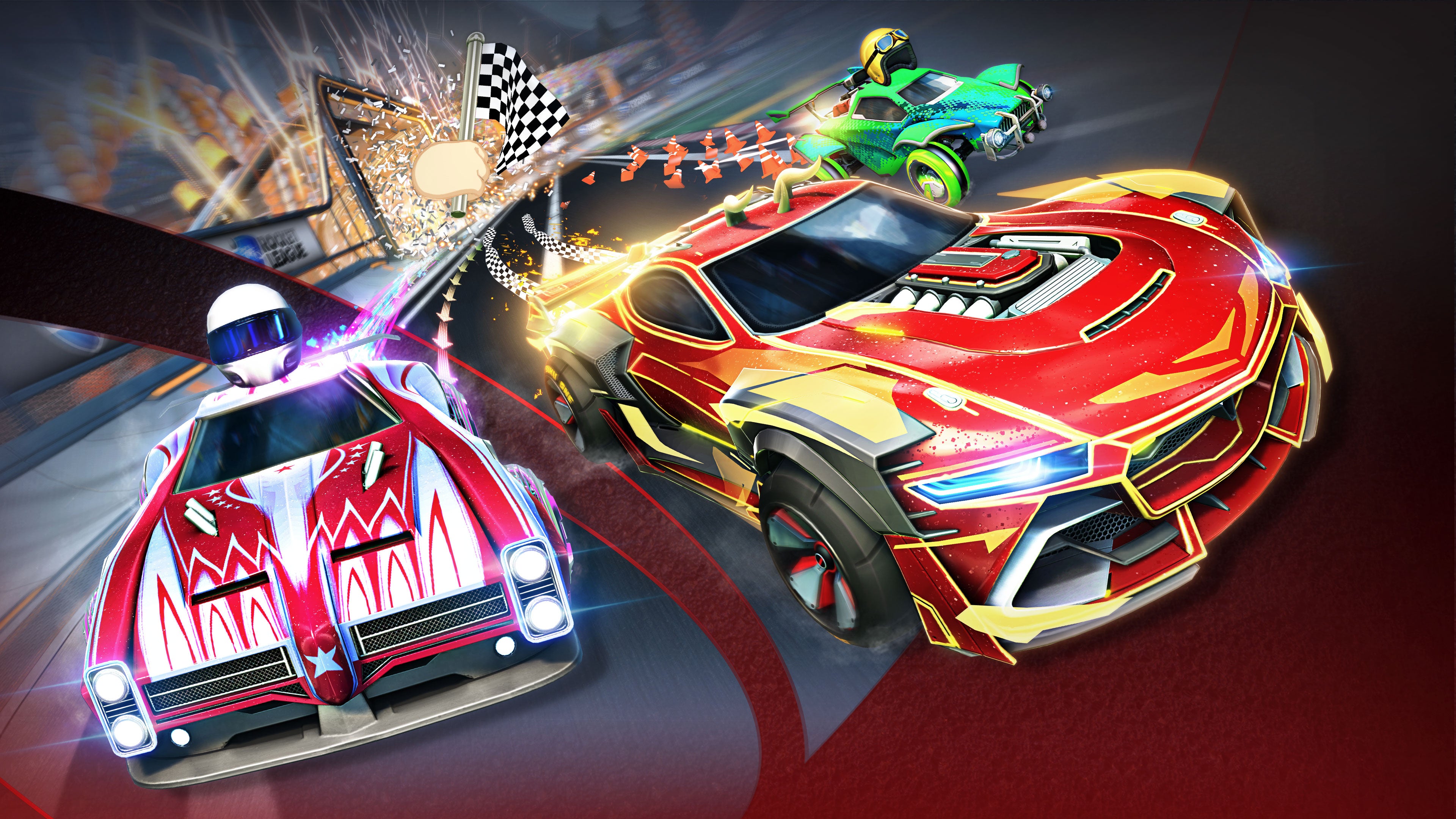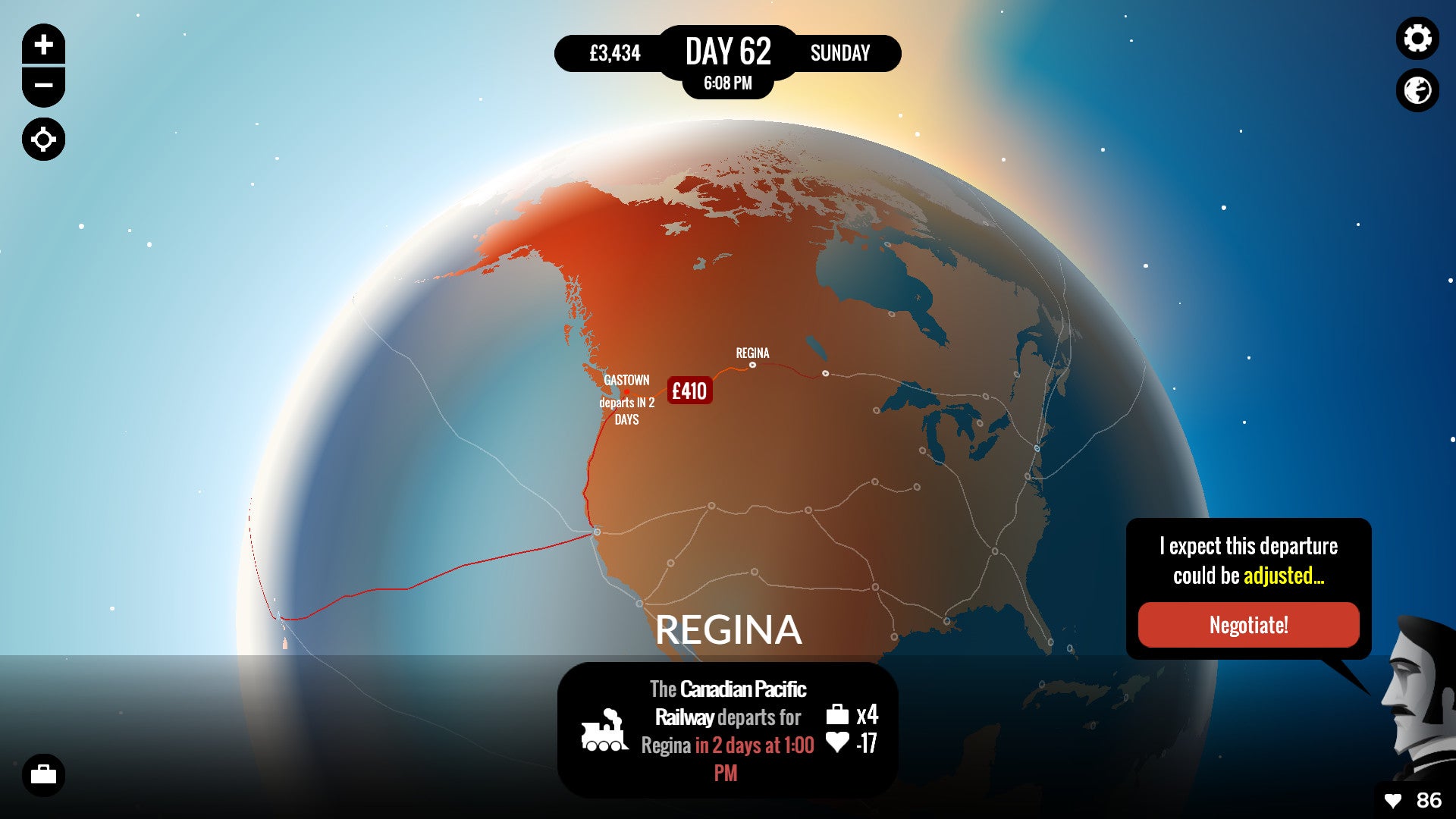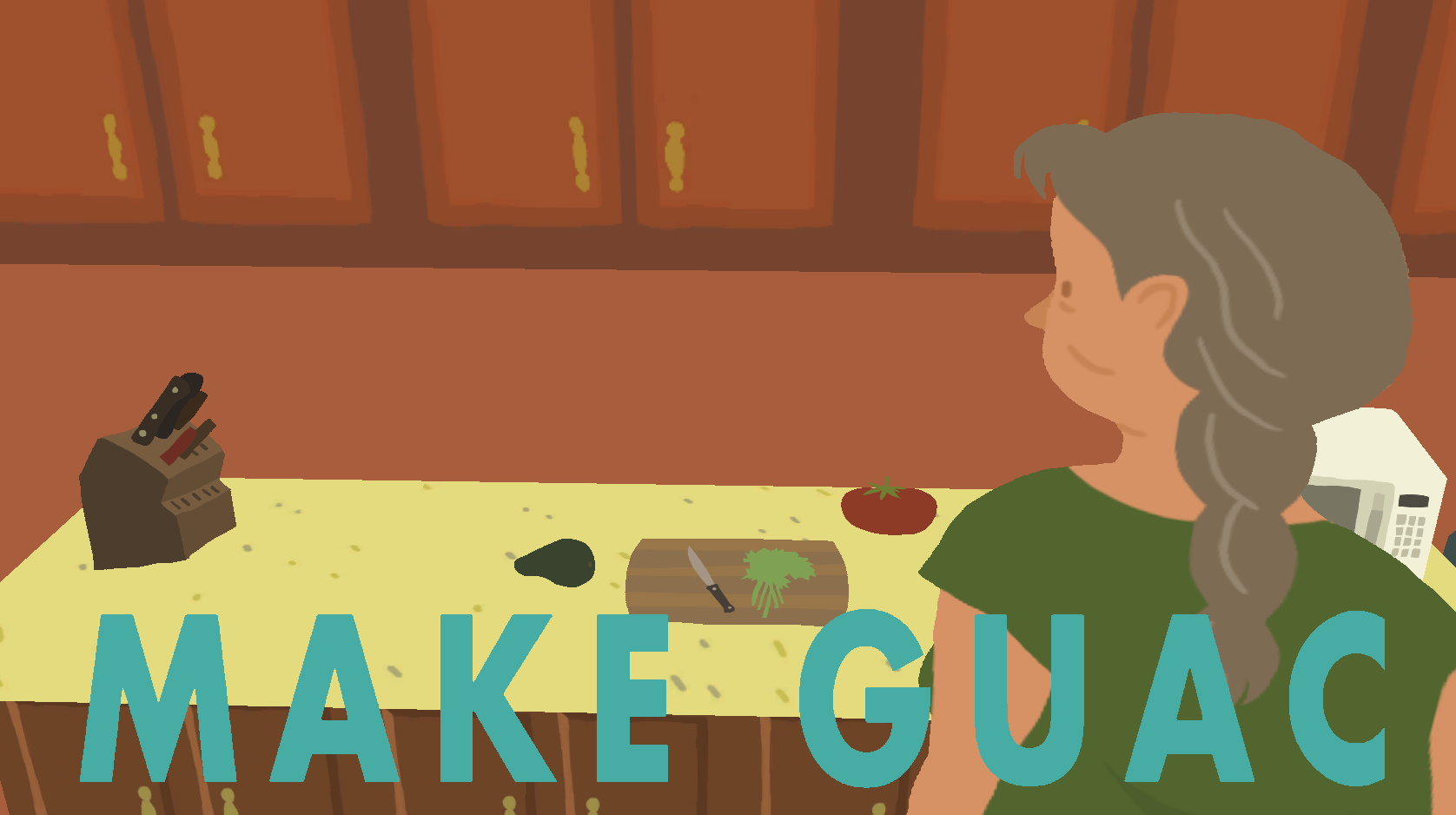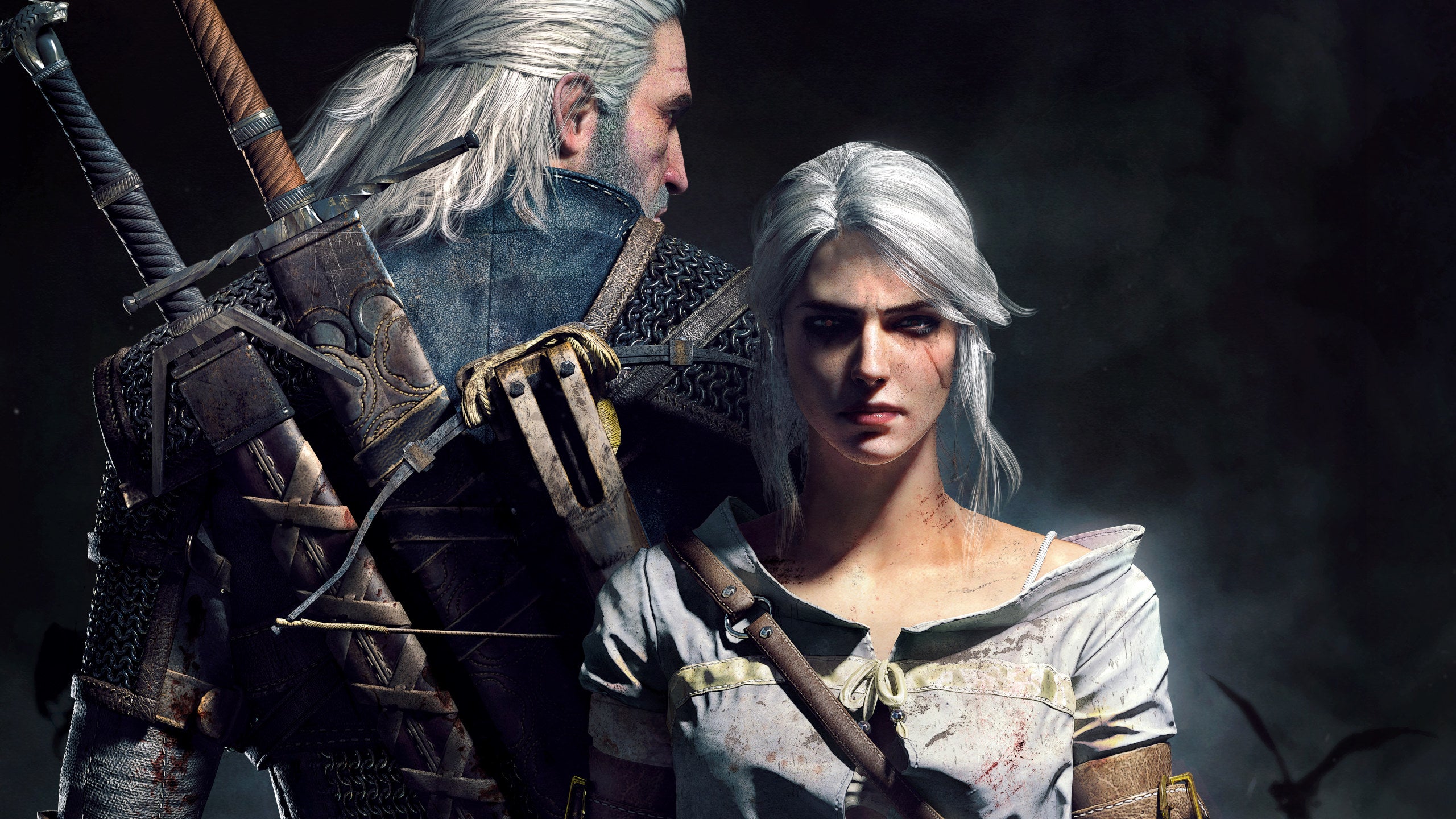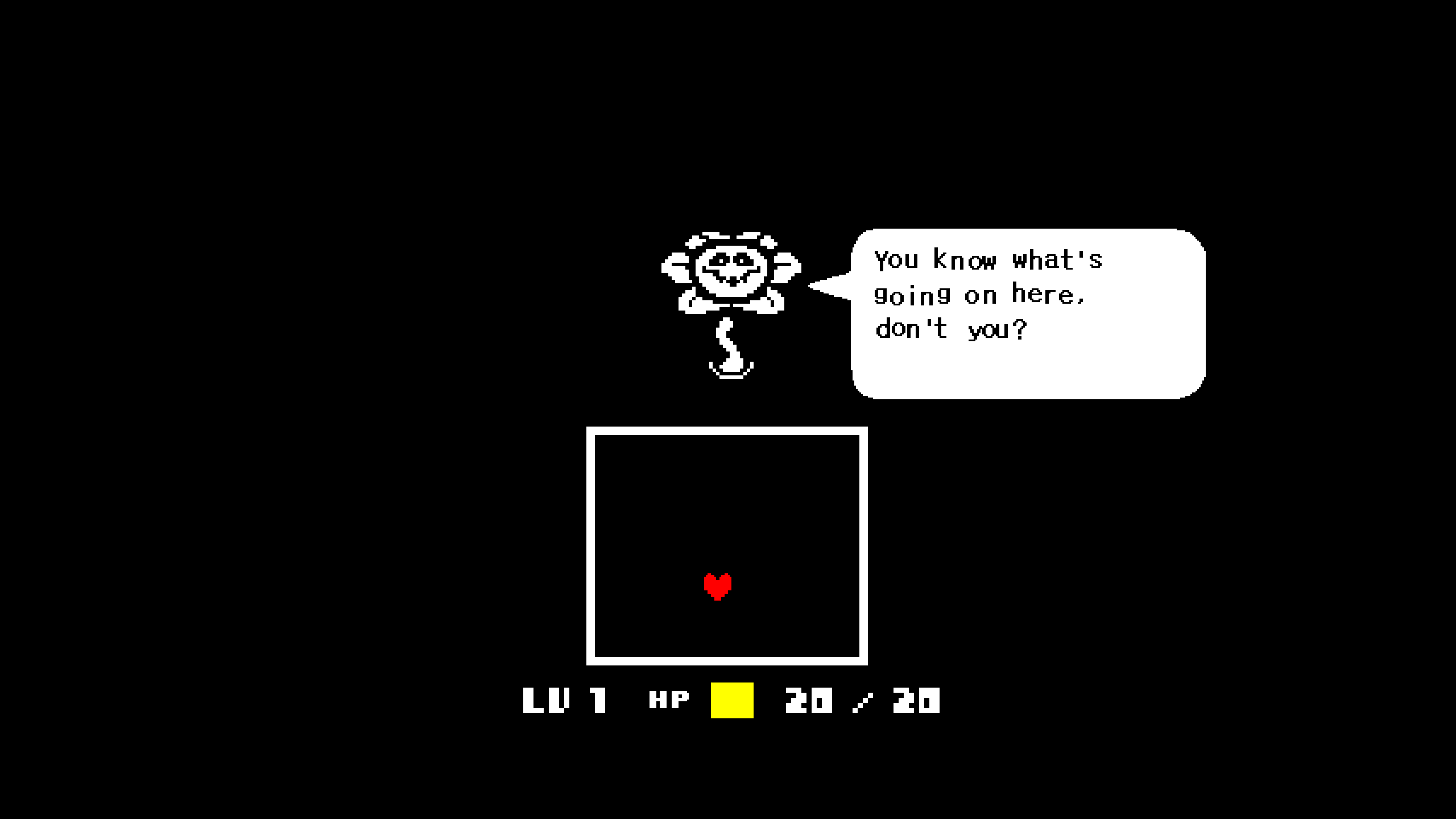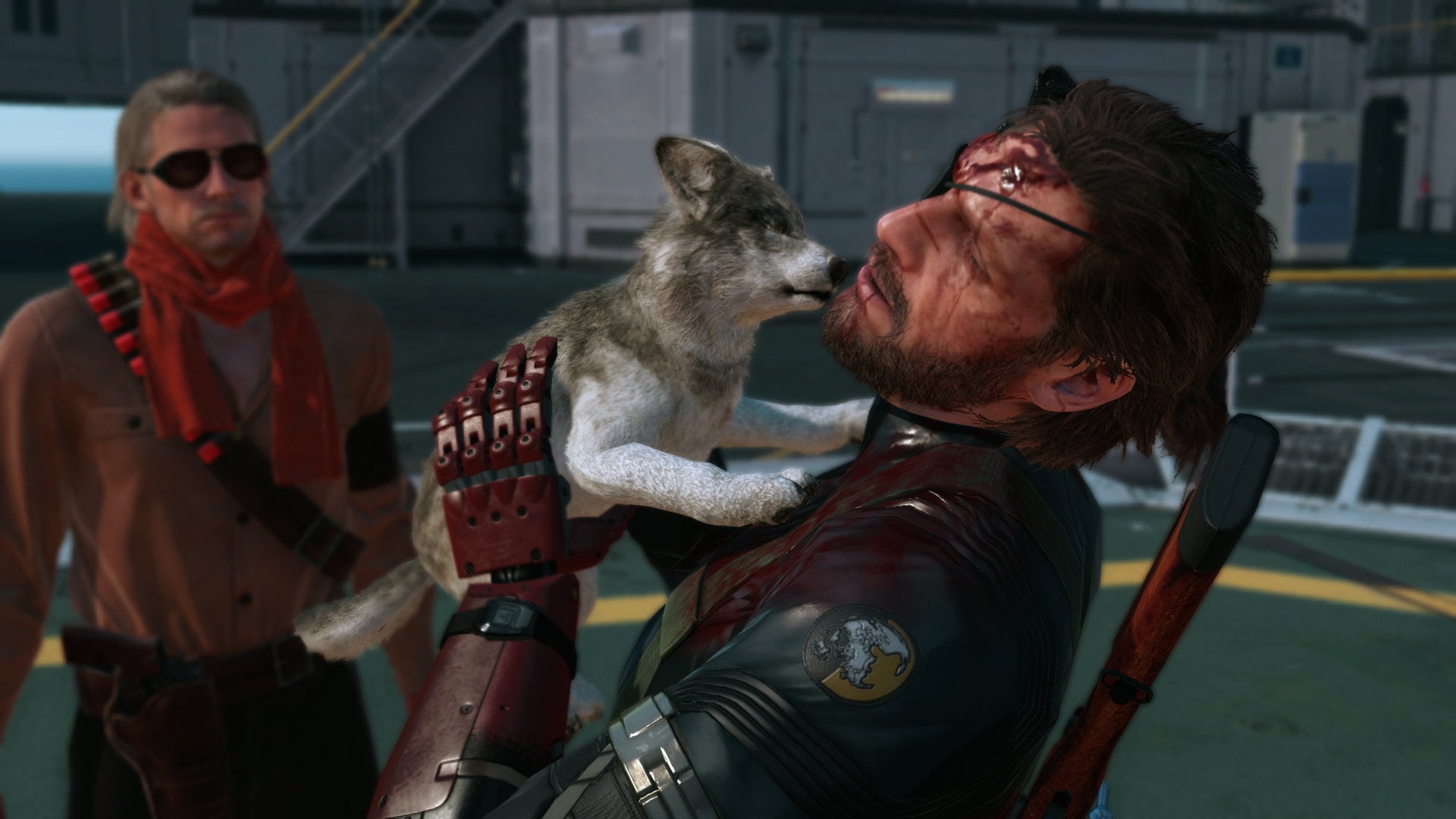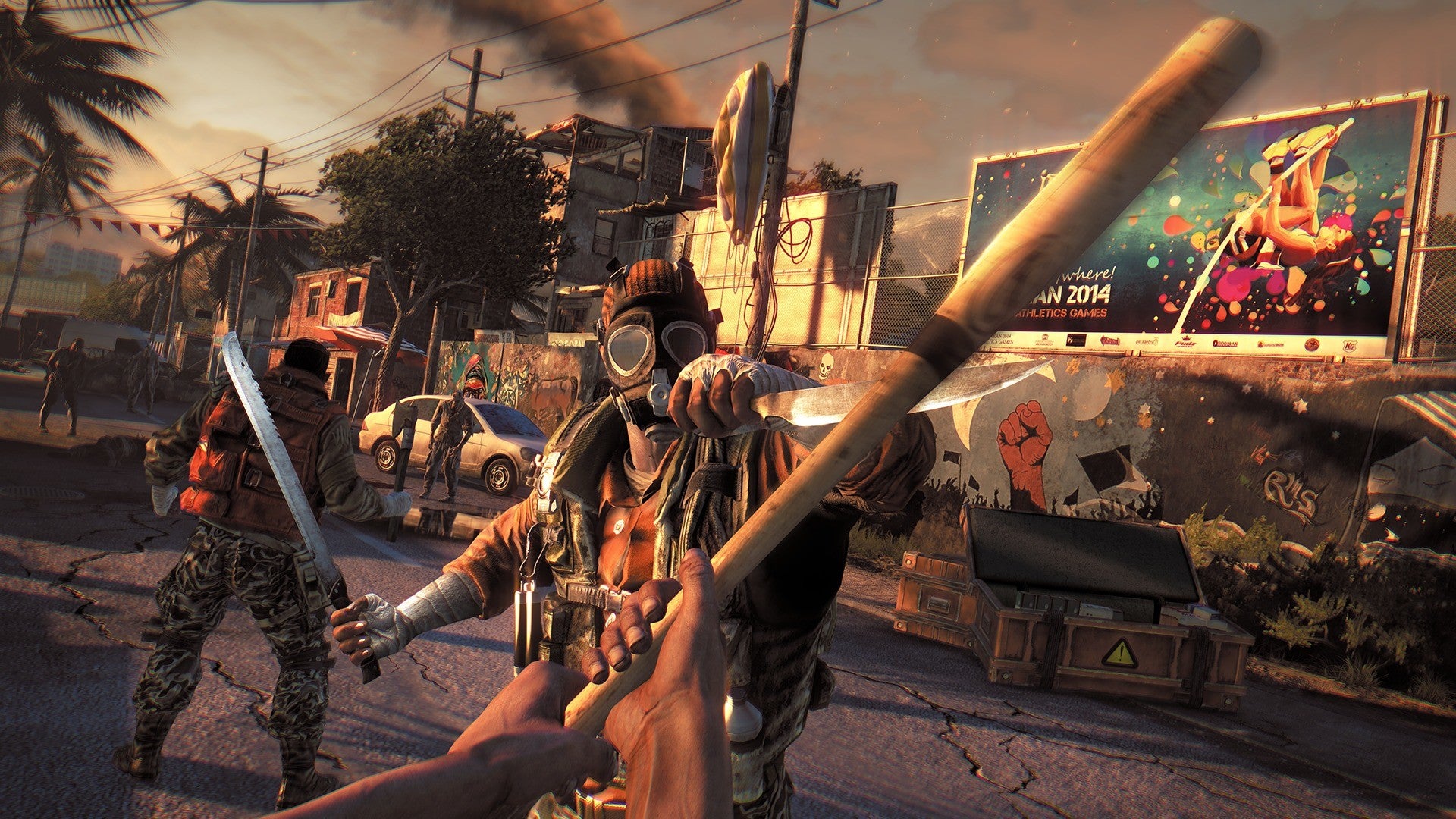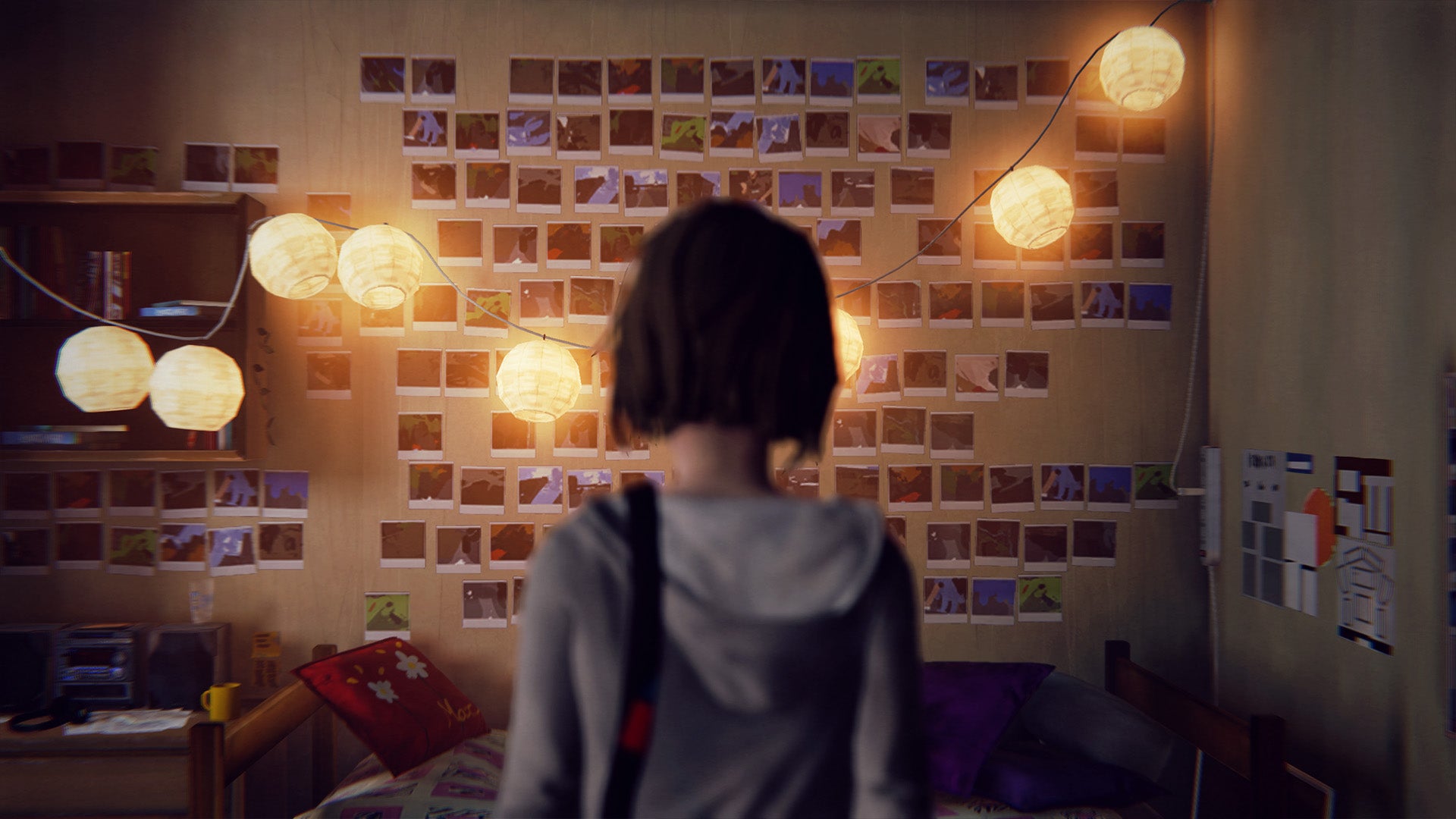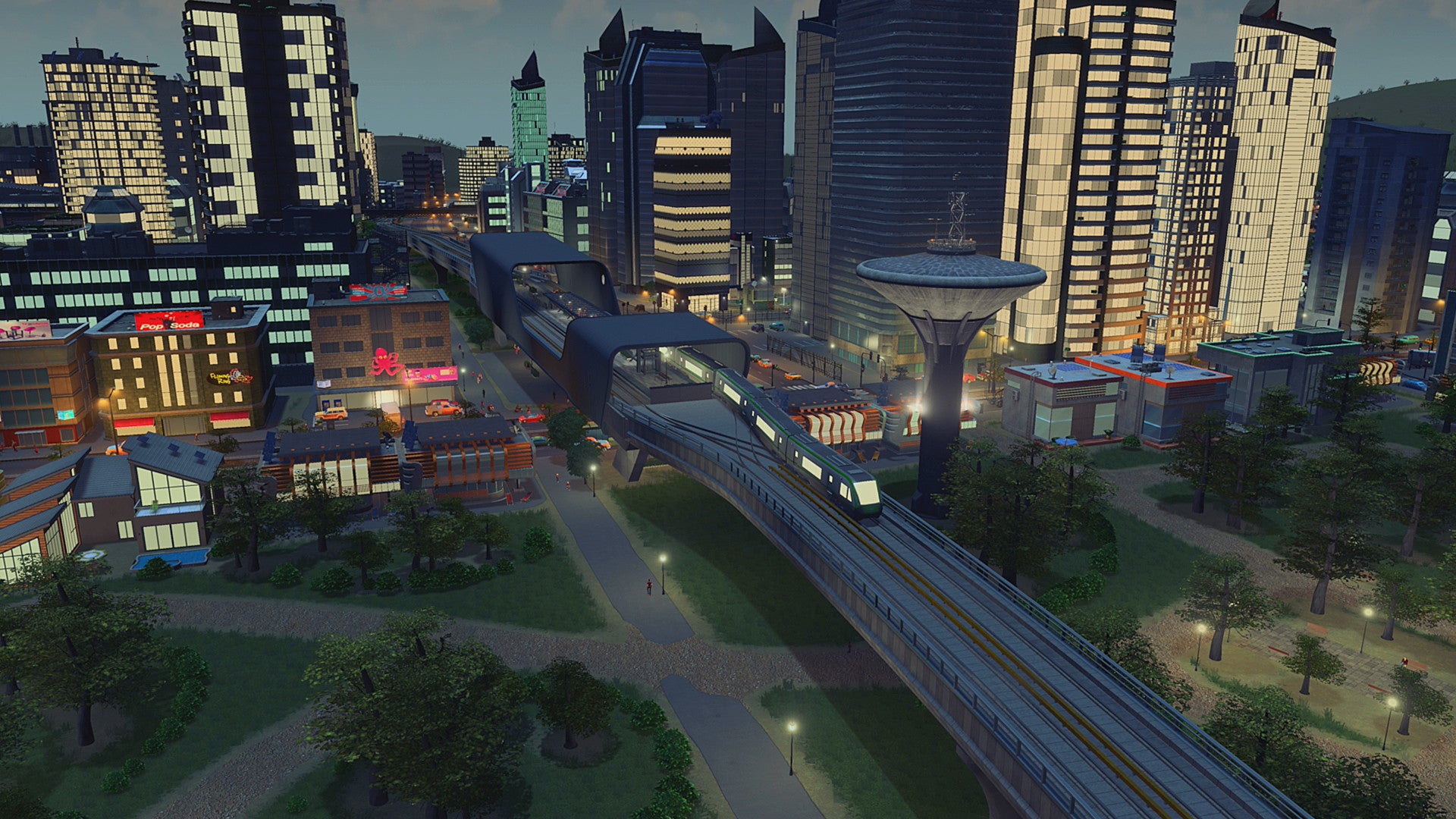As always, we’re going by the year of a game’s PC release, not when they might have come out on consoles years earlier. It’s also this particular version of a game we’re recommending as well, which is why you might see certain games absent from their original release year if they’ve had a shiny new remaster or remake recently. The RPS Time Capsule is also not intended to be a definitive best games of the year list - it’s simply a collection of our personal faves, and ones we’d want to save in the event of some probably not at all inevitable apocalypse. They will (hopefully) be games that hold important lessons for the future, whether that’s being an exemplary example of their respective genre, or just, you know, too gosh-darned good to consign to the digital doom shredder. Of course, in a year as stacked as 2015, there’s always going to be a handful of games that missed our list, but might be top of yours. Let us know which game you’d save from the heatdeath of the universe in the comments below. And remember, you only get to pick one. That’s the Capsule rules.
Rocket League
Ollie: Rocket League is still the finest competitive game ever made. From a spectator’s point of view, it’s perfect. There are no huge on-boarding videos, you don’t need someone at your shoulder explaining everything that’s happening on-screen. All you need is four words - “it’s football with cars” - and you’re ready to sit back and enjoy some spectacular acrobatic plays. I don’t think I ever got as good at another game as I got at Rocket League. After the first hundred or so hours (a tiny amount of time when it comes to deep competitive esports), everything just clicked. I was able to start doing reverse aerials, wall-pinches, dainty redirects, and all the other things that you can coax your rocket-powered car to do once you’ve learnt how. By my 500th hour, I was a Grand Champion - the highest rank in the game. I played for another 500 hours after that before finally the advent of the battle royale genre started to snatch away my attention. Highly intuitive, incredibly rewarding, and unfathomably deep, Rocket League is absolutely perfect at what it sets out to do.
Grand Theft Auto V
Hayden: Sometimes I think I don’t like GTA V, but I’d probably feel the same way about anything after playing it on and off again for almost 10 years. That’s a long time, but the memory of my initial playthrough hasn’t faded. I still remember waking up early to complete the Jewellery Store Heist before school, like a goblin craving some chaos before being thrown into the pits of Catholic education. Sublime. Of course, GTA V is a two-part package, and GTA Online has everything you could ask for. It’s a playground filled with things to do, and me and my pals had a great time getting lost in its many myths. Between hunting for the ghost of Mount Gordo, documenting alien murals around Mt Chiliad and more, GTA Online renewed that buzz we had while hunting for the mythical Ratman in GTA IV, and it made for some very fond memories.
80 Days
Katharine: I suffered severe emotional turmoil picking 80 Days over some of my other 2015 PC faves for this month’s Time Capsule, (here’s to you, Kalimba and Ori And The Blind Forest, it’s been real). But deep down in my heart of hearts, I know Inkle’s round-the-world text adventure is the right choice. Based on the Jules Verne novel of the same (if slightly longer) name, 80 Days puts you in the well-worn shoes of Passepartout, the dutiful valet, suitcase organiser, purse keeper and general trip planner for the esteemed Phileas Fogg, the latter of whom has made that classic bet of being able to circumnavigate the globe in 80 days or less. Far from being a dry retread of a literary classic, however, Inkle’s Steampunk-infused take on the 80 Days story is bursting with life, wit and warmth round every corner, not least because there are so many gosh-darned routes to take. Honestly, by the time you get back to London, you’ll want to hotfoot back out again, just to see what other adventures are out there lying on the horizon. It’s not just its tale of mischief and mayhem that makes 80 Days worth saving, though. Along the way, it also plots a course that elegantly traverses multiple genres, giving players an expertly guided tour of the visual novel, management-lite and point and click adventure game. Its 750,000 word script is an absolute marvel, evoking the kinds of impossible cities, bustling machines and wistful chance encounters that even some of the flashiest open world games still struggle to match. Sure you’ve got that 80 day deadline ticking away in the background, but hot damn if it still doesn’t make you choose between efficiency and the allure of just ‘one more day’. And that’s before we even get into the inventory Tetris of managing Fogg’s suitcase, and making sure he’s got his morning cuppa ready and waiting at the start of each day. In short, it continues to be one of, if not the best piece of interactive fiction around today, and that’s definitely worth saving over some dancing totem poles and a wispy forest sprite (sorry again, Ori and Kalimba, I love you really!).
Little Party
Alice0: Little Party is one of my favourite short days. Your artsy daughter is holding an artsy sleepover with her artsy pals at your cute little home in the woods, and you’re there mumming about while they paint and compose and make games and such. It’s a lovely and gentle experience, pottering about, chatting with people and seeing what everyone’s up to, with a little tension running through the gaps in the story. The game is so beautifully put-together. The mix of 3D art with 2D sprites for characters and objects is gorgeous, the world crammed full of interesting details and decorations. Time-skipping forwards as you do things around the home is pleasantly subtle. The dialogue is sweet and thoughtful. It’s not a life-changing day, but it is one of those little important days that truly makes life worth living. And the dog, oh what a perfect dog. Had Little Party come out five years later, it would likely be claimed by “wholesome games”. Let us be thankful that it avoided the discourse and can just be its wonderful self.
The Witcher 3: Wild Hunt
Ed: It took me nearly six years to complete The Witcher 3, after I bounced off its jank and became a bit overwhelmed by the scale of its open world. But once I understood that I could just take things at my own pace and soak up its plentiful side quests, then things clicked into place. I clocked that it was a bit rough around the edges but its pull lay in its chats, not its fights with giant rats. And those side quests - wow. It’s rare to play a game where the optional stuff is just as dense and winding as the main story, with dialogue options that, yes, might be a bit irksome at times, but genuinely determine how things shake out. I like how you know that each side story will spiral out of control and it still manages to surprise. In the end, you’re gripped less by the action and more by the strength of each character you meet along the way.
SOMA
Alice Bee: Soma – or, I suppose, SOMA – isn’t just my best game of 2015. I list it quite happily among my best games of all time. Frictional Games also brought you the series Amnesia, but I will always think of Soma as the real dark jewel of their horror games crown. It’s scarier, weirder, smarter in almost every way. Most games that call themselves “psychological horror” these days just mean “oooh, you’re having hallucinations” or “someone who used to live in this haunted house had a bad time and wrote a journal, which you will now gradually collect the pages of, detailing it all in increasingly poor handwriting.” Yawn-o-rama. Soma is actual psychological horror, by which I mean Soma poses you questions about selfhood and consciousness and being and they are terrifying. You play Simon, who closed his eyes for a brain scan and opened them again to find himself in a semi-derelict deep-sea science facility. The walls are weeping. It makes strange noises. It is full of semi-human monsters and machines in pain – which I won’t spoil because, though these monsters do make Soma technically a survival horror, they’re not the scariest part. There’s a version you can play without them as well, if you don’t like being chased by weird things. Either way, Soma set a standard for intelligent horror games that needs to be preserved, if only to balance out one of the ubiquitous haunted Edwardian mansion games.
Undertale
Rachel: I started playing Undertale on a Saturday morning back in 2015, proceeded to play the entire thing in one sitting, watched the credits roll in the evening, and then immediately clicked ‘new game’ to play on into the night. It’s a fairly short game, clocking in at 6-7 hours long, but there’s so much stuffed into this RPG homebrew that the hours just flew by. It’s simultaneously one giant meme-filled poke at the clichés of traditional RPGs while also being a sincere story with a heartfelt message: be a kind person (even when a giant, armoured fish lady is trying to kill you). See in Undertale, you can choose not to fight the monsters you encounter. Solo dev Toby Fox took one of the biggest troupes found in RPGs and chucked it straight out the window by giving the player one simple choice: Attack or show mercy? It’s something that’s not made obvious the first time you play (as I horrifically found out after killing my surrogate goat mum on my first playthrough) but options like “talk,” “pet” and “flirt” encourage you to find other ways to solve conflict in fun ways. There’s a lot of hype about Undertale online (some of which is massively overblown) but fundamentally, it’s just a solid game with funny jokes, an earnest story, and a clever, little RPG twist. Oh, and I’ll also metaphorically chuck in a copy of the soundtrack into the Capsule as it’s just banger after banger. It’s honestly impressive. Alice0: I like the skeleton.
Metal Gear Solid V: The Phantom Pain
James: Let’s be honest, much of Metal Gear Solid V is a joke, and not the ha-ha kind. It’s actually missing those, abandoning the series’ endearing oddness in favour of a dour attempt at a conventional thriller tone, and the final hours – comprised mainly of recycled missions on higher difficulty settings – collectively form the worst example of bodge-jobbing I’ve ever seen in a creative work. It’s also a damned outstanding stealth game. The open-world, sandbox approach affords it a far greater playfulness than the grumpy demeanour would ever suggest, and the strength of your toolkit is balanced by challenging level design and baddie AI that acts logically but is never too easy to manipulate. I’d be reluctant to leave this particular example of MGS storytelling as the one to be remembered, but the sneaking? That’s exemplary. Alice0: It’s amazing how good this game is despite so much being so bad.
Dying Light
CJ: I always feel slightly embarrassed for liking Dead Island so much. Techland’s first zombie thwack ‘em up really grabbed me back in 2011 and 2012, despite my desperate, flailing attempts to bat its legions of undead tourists away. When Dying Light showed its half-chewed mush a few years later, the cycle of zombie apocalypses dragged me right back in again. There’s a few differences between Dying Light and Dead Island, mind, and I wasn’t immediately chuffed about all of them. Dead Island’s bizarre, unwieldy, hand-waving melee attacks were one of my favourite parts of that game, because they’re so frantic when you’re fending off the zombs. While Dying Light dropped that particular electrified crowbar, Techland made the possibly genius decision to chuck parkour in there instead. And it just sings. Techland kept throwing more stuff on the Dying Light pile for years after the game was released, too, with expansion pack The Following’s dune buggies being a notable boon. I’m not sure anything else can top the thrill of leaping between post-apocalyptic Harran’s buildings in the dark while freaky superhuman night-time infected are roaring for your flesh, though.
Life Is Strange
Rebecca: Not long after I first played Life Is Strange, I was walking across campus when I heard a lad behind me shout “Max!” and I instinctively turned around to respond. I think that was the point where I realised quite how much I’d come to identify with this game and its characters. The cast of an average LIS game is made up of about 80% neurotic bisexuals, so it’s really not that surprising that this whole franchise makes me feel quite seen. But even though (joking aside) I genuinely respect this series for what it’s achieved in terms of representation, I don’t think my relationship with these games is really particularly profound. I like queer romances; I like superhero stories in down-to-earth settings. I like alternative folk rock soundtracks, and the weird feelings of faux-nostalgia I get when viewing corny golden-hour Americana from a clearly European perspective. Life Is Strange doesn’t always hit the right notes with everything it tries to do, but it always nails these parts while telling an entertaining story; and as long as it does, I’ll keep coming back for more. The 2015 version of Life Is Strange is still available on PC and last-gen consoles, but looks likely to soon be surpassed by the 2022 remaster, which is… fine; but as I said at the time, I’ll stick with the original for as long as I can, thanks!
Cities: Skylines
Liam: Do you know how hard it was to be a fan of city builders back in the early 2010s? Do you know the lengths you had to go to in order to build a little park? To alter the amount of tax industrial buildings pay per quarter by a single percent? Folks like me were desperate. We were trading copies of Tycoon City: New York in local alleyways. What else were we meant to do? Play EA’s 2013 SimCity reboot? Hah! Good one! Everyone was furious about that game for reasons I no longer remember, which I can only assume means that they were all very valid and extremely normal. No. Things were bleak, and it felt like the genre was gone forever. That is, until Colossal Order released Cities: Skylines in 2015. It was unbelievable! Here was the next-generation SimCity we’d all been waiting for, complete with all the features and quality of life improvements fans expected from a project like this. The vanilla version of Skylines felt complete straight out of the gate, providing a deep and satisfying simulation that appealed to hardcore fans of the genre and casual players alike. Did you want to micro-manage traffic flow? Build an aesthetically pleasing metropolis? Create custom buildings - and custom features! - before sharing them via the steam workshop? Cities: Skylines catered for it all. I think it says a lot that the game is still receiving expansion packs as recently as this month. Cities: Skylines is the best city building game ever made. An absolute triumph.
